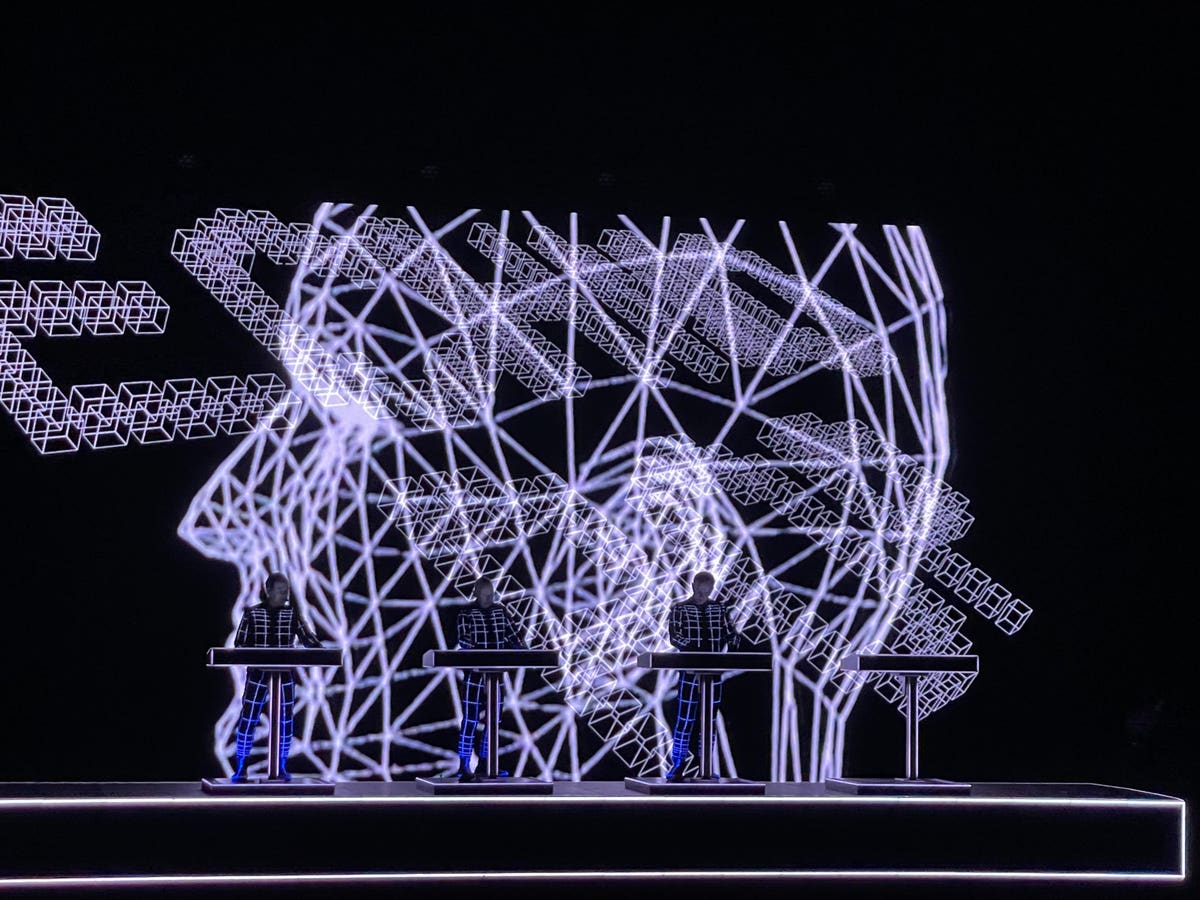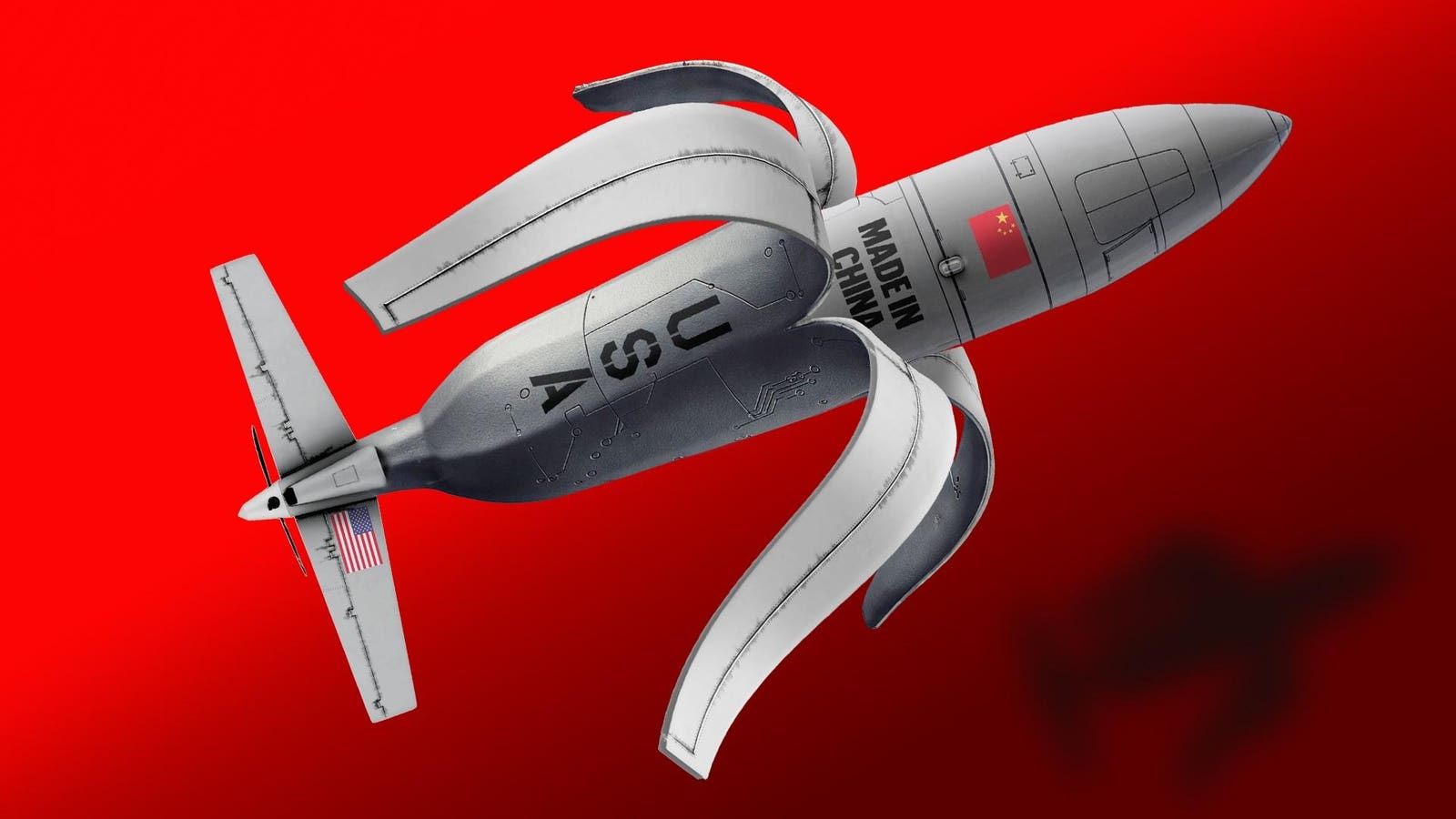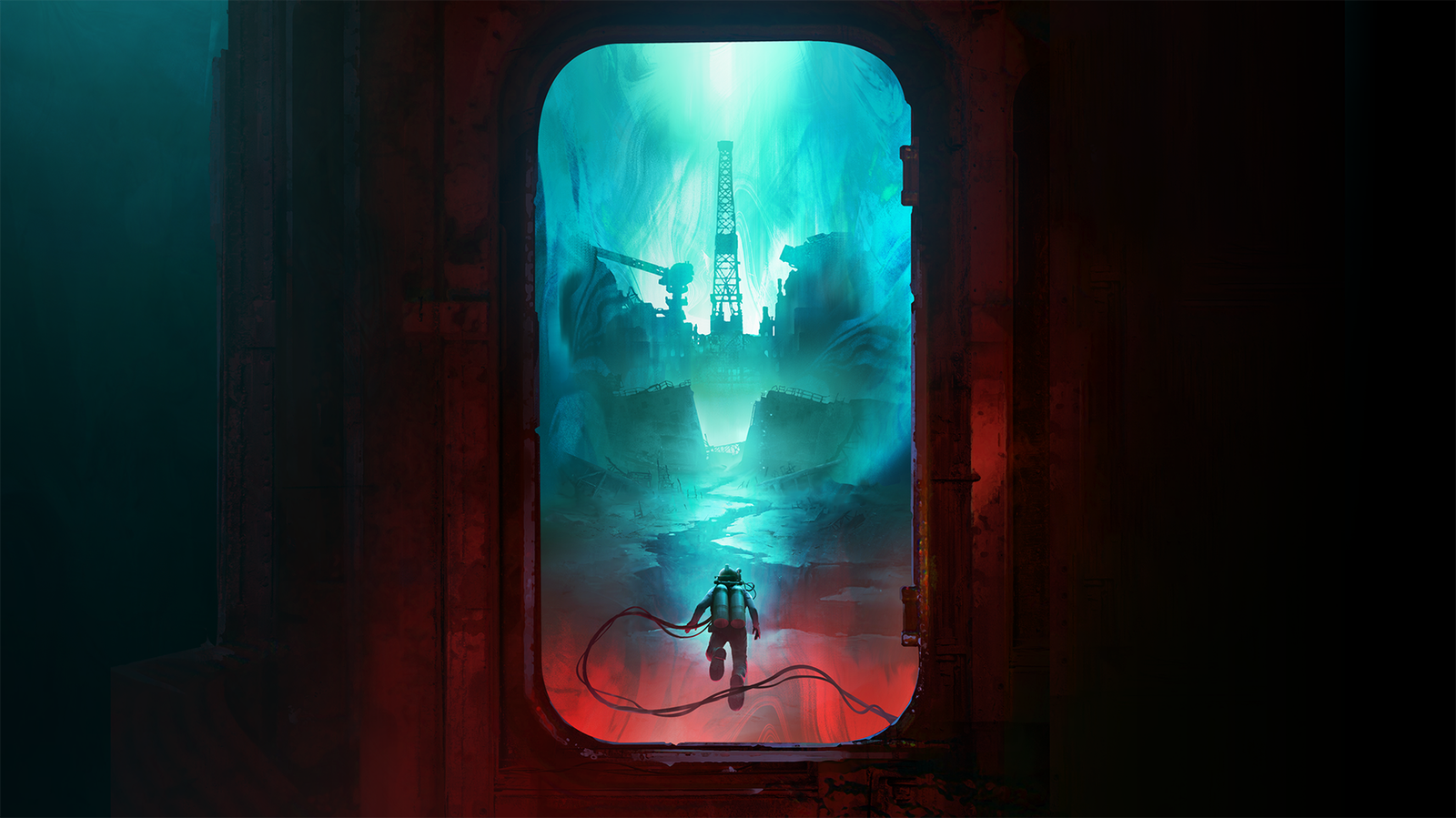Kraftwerk in Austin
The Bass Concert Hall turned dark, seeming almost cavernous. A low frequency electronic pulse filled the air, mechanical yet strangely alive. Scintillating. Vibrating. Evocatively turning deep, electronic guttural sounds into something that resembled human speech. Deconstructing information into component frequencies.
In Austin, far from Düsseldorf and Zürich, Kraftwerk performed what may be one their last world tours. Florian Schneider is gone. Ralf Hütter is 78. These artists are to me, more influential and important than the Beatles. More primal than Elvis. And greater philosophers than many who have dedicated their life to this subject. What unfolded in their performance was the furthest thing from an ordinary concert. It was a revelation. An introduction to, and a glimpse into a potent, fascinating, yet hidden world.
A world not of nature.
Not of man.
A third realm, that of technology itself.
Throughout history, human understanding has been framed around two dominant spheres:
The world of nature, existing independently of our will. The world of man, shaped by mind, imagination, and society.
But there is a third realm, often overlooked as a place unto itself; the world of technology, distinct, autonomous, yet seen, discovered and perceived through human hands and minds.
It is not a mere extension of man, nor a deformation of nature. It is something else. A reality lying latent, awaiting uncovering. Like mathematical truths that exist before their discovery, technology embodies structures and possibilities inherent in the fabric of reality itself.
Kraftwerk, through sound and image, strips away the familiar, and for a moment, exposed this world to view.
Nature, Artifice, and Hidden Forms
The struggle to distinguish between the natural and the artificial is as old as philosophy itself.
For Plato, reality was not the flux of nature, but the eternal, immutable Forms, perfect ideas underlying the chaotic surface of the world.
The material world was a mere shadow, a poor imitation of deeper truths.
In this light, human creation was often seen as one more step removed from authenticity.
And yet, if the Forms exist, if reality has an underlying structure, then acts of creation, invention, and discovery are not degradations, they are gestures toward uncovering deeper truths.
Technology, seen through this lens, is not a corruption of nature, nor a rebellion against it. It is another projection of the universal truths. It is an alignment, a striving to manifest hidden structures of existence.
The discovery of numbers, the construction of machines, the algorithmic symphony of logic. All are not mere human artifice, but the surfacing of something real.
Something that was always there.
Consider the wheel exists in nature’s circles, electricity in lightning, binary logic in the on/off of neural firing. We do not invent these principles; we uncover them, give them form, allow them to emerge into visibility.
Kraftwerk’s brilliance is, then, not merely music. It is not merely the visual art. It is in the comprehensive and accessible act of uncovering.
Heidegger and Technology as Unveiling
In the twentieth century, Martin Heidegger reframed the ancient dialogue. Technology, he argued in The Question Concerning Technology, is not simply a collection of tools.
It is a mode of revealing, a way in which reality itself is brought forth into visibility.
Heidegger called this Entbergen, an act of uncovering.
Through technology, aspects of the world hidden from ordinary experience are made accessible. Yet, Heidegger warned, there is also a danger. Technology may reduce the world to a mere standing reserve, stripping away mystery, reducing being to resource.
But at its heart, technology is revelatory. It makes visible that which was veiled.
As the figures of Numbers cascaded across the screens in Austin, integers tumbling in German, Japanese, English, Russian, I realized these were not merely intended to be seen as familiar, mundane symbols.
They were aspects of reality, uncovered by the mind, given form through machine, presented as pure abstraction. Numbers collide. Numbers emerge. Numbers equate. Numbers exceed. They exist absent all else.
This is the paradox. While technology requires human consciousness to be revealed, what is revealed transcends the merely human. Like a mathematician discovering rather than inventing mathematical truths, we are conduits for technology’s emergence, not its sole authors.
Kraftwerk’s Map of the World Beyond Worlds
Each song in Kraftwerk’s set was a meditation on different aspects of this hidden realm:
Numbers presented pure abstraction, numbers not as human symbols, but as ontological realities, revealed through machine logic.
Pocket Calculator emphasized the act of operation over creation. I’m the operator of my pocket calculator. The device exists apart from us; we interact with it, but we do not author it.
An electric ambience pervades the entire performance…
Radioactivity captured the duality of nature and technology. A phenomenon that exists both in the heart of stars and in the heart of human made reactors, creation and destruction blurred. Transported into the world of man, radioactivity is the harbinger of destruction. But on its own…
The Robots explored the emergence of a new entity which is neither human nor merely mechanical, but something third, something that occupies a new ontological space. Here, perhaps, we glimpse what artificial intelligence may become: not mere tools, but entities with their own form of being, uncovered at the intersection of mind and mechanism.
Autobahn is a celebration of technological connectivity, of a machine conduit. Of a platform that unlocks more of what the machine can do. Accompanied by images not of people, but German machines on a low poly German road, expressing the machine capability of speed; of transit; of unimpeded flow.
Tour de France is a meditation on the tour not as a human endeavor. Not as a journey across nature. But as a network; a graph; a succession of nodes. A tour enabled by a machine; the bicycle. This is the projection of the concept of Tour de France in the world of technology. It is distinct from the projection of this concept into the world of man, or the world of nature.
Each performance abandoned traditional human emotions, focusing instead on precision, abstraction, minimalism, all in service of revealing technology’s independent existence.
Germany, Zurich, and the Soul of Machines
It is no accident that Kraftwerk arose from the German speaking world, a civilization with a profound, sometimes ambivalent, relationship to technology.
This relationship became clearer to me when I read that great ode to German invention and technology, “German Genius,” recommended to me by my brilliant friend, Paul Achleitner, who is both deeply interested in art and a leader of German finance. In Germany, technology was never merely a means to an end. It was something closer to a metaphysical destiny.
“Vorsprung durch Technik”, or advancement through technology, is not simply an Audi slogan. It is more a declaration of belief. Just walking in the German speaking world, in Zürich for example, you come across streets named Maschinenstrasse (“Machine Street”) and Enginestrasse (“Engine Street”). Here man decided to pay homage not to nature, not even to humanity, but to the idea of machinery itself, an acknowledgment that technology has a life and dignity of its own.
This cultural recognition reflects a deeper truth. That technology deserves reverence not as our creation, but as a fundamental aspect of reality we have learned to perceive.
German Romanticism, industrialization, and the later traumas of the twentieth century all layered into this complicated reverence.
Technology was seen as both salvation and abyss, a force capable of transcending human limits, but also one that could eclipse the human altogether.
Kraftwerk inherited this dual consciousness.
Their music is neither celebration nor lamentation. It is the pronouncement of prophets. It is an act of witnessing. It is the declaration of a truth. A truth many don’t yet see.
Man, Machine and Emergence Beyond Biology
In The Man Machine, Kraftwerk advanced perhaps their deepest philosophical statement.
The man machine is not fully human, stripped of frailty, emotion, decay.
But it is not merely mechanical either, it possesses autonomy, responsiveness, a shadow of intention.
It is a new quantity. Less than human, because it lacks spirit. More than human, because it transcends biological constraint.
It is a being uncovered at the intersection of mind and mechanism, a glimpse, perhaps, of what is to come as artificial intelligences evolve beyond narrow tools toward autonomous existence.
Standing between nature and humanity, technology births beings that are neither, yet partake of both.
Living in the Third Realm
Nature will endure, with its forests, rivers, stars.
Human culture will continue, spinning its myths, its struggles, its dreams.
But the third realm, the uncovered world of technology, is rising.
It is not merely a byproduct.
It is a domain of being: real, structured, autonomous.
Technology is not our invention alone.
It is an unveiling, a drawing forth of latent realities woven into the fabric of existence itself. Even if we were not, technology would be, in the same way that mathematical truths exist independent of minds to think them. We are the occasion for its revelation, not its ultimate source.
Through minimalist beats, robotic voices, and cascades of pure data, Kraftwerk offered us a glimpse into that domain.
A world not of nature.
Not of man.
But something new.
Something uncovered.







